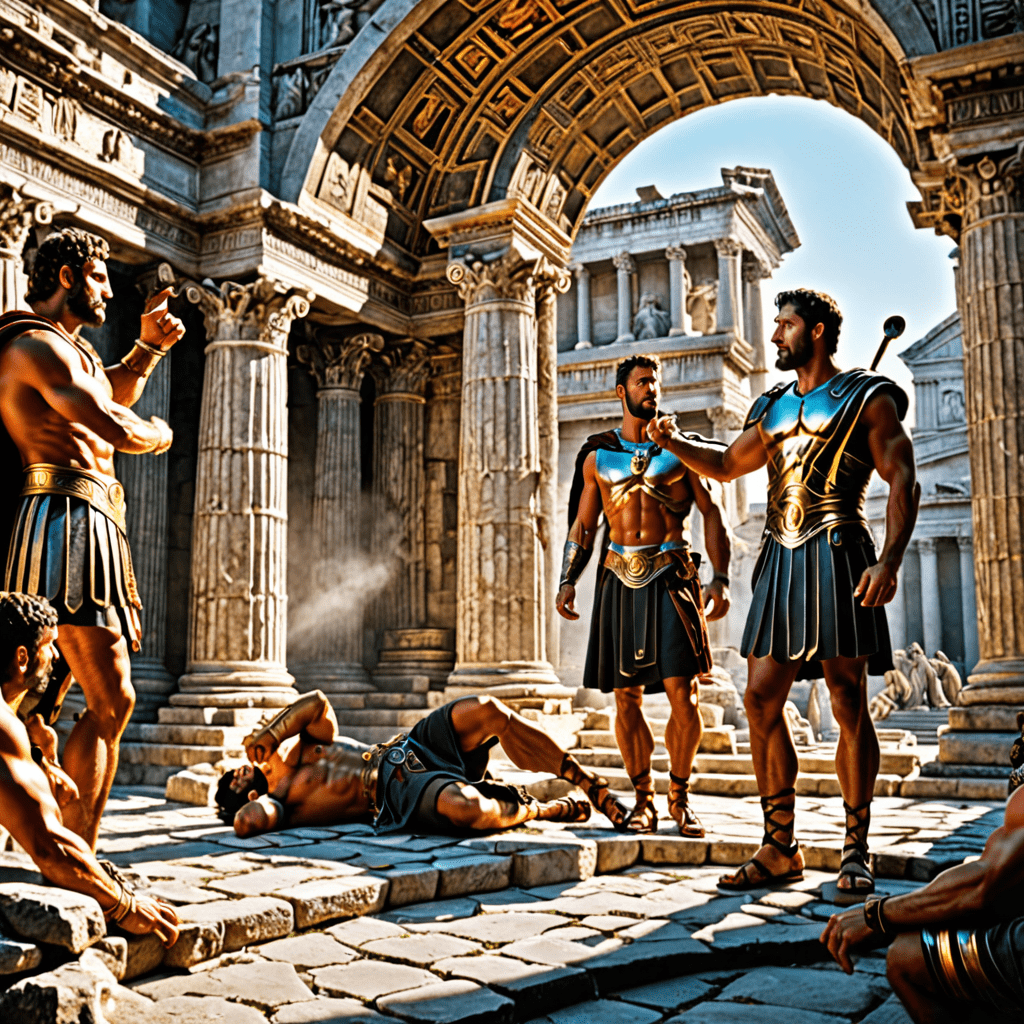Cultural Hero Myths: The Legends That Connect Generations
Introduction to Cultural Hero Myths
Cultural hero myths are foundational narratives that define the values, beliefs, and identity of a society. These myths often feature extraordinary individuals—heroes—who embark on epic journeys, face formidable challenges, and ultimately triumph in ways that resonate with the collective consciousness of their culture. They serve not just as entertainment but as a means of preserving cultural identity through storytelling.
Storytelling is a powerful tool that has been employed across generations to connect communities, impart moral lessons, and explain the mysteries of existence. Through these narratives, societies pass down wisdom, inspiring future generations to uphold the values encapsulated in their cultural hero myths.
Historical Context of Hero Myths
The evolution of hero myths can be traced back to ancient civilizations, where they were integral to the social fabric. From the epic tales of Hercules in Greek mythology to the heroic deeds of Gilgamesh in Mesopotamian culture, these stories reflect the ideals and aspirations of their times.
When we compare hero myths across different cultures, we can identify both unique features and commonalities:
- Greek Myths: Focus on individual heroism and the struggle against fate.
- Roman Myths: Emphasis on duty, honor, and the collective good.
- Indigenous Myths: Often include a deep connection to nature and communal values.
This cross-cultural examination reveals how hero myths are shaped by their historical and social contexts yet often address universal themes of human experience.
Common Themes in Cultural Hero Myths
Hero myths frequently explore archetypal themes that resonate deeply with audiences. Some of these themes include:
- Bravery: The hero faces fears and overcomes insurmountable odds.
- Sacrifice: The hero often gives up personal gain for the greater good.
- The Journey: A transformative quest that leads to self-discovery and personal growth.
The hero’s journey, a narrative structure popularized by Joseph Campbell, illustrates this journey of transformation. It typically involves stages such as the call to adventure, crossing the threshold, and returning with newfound wisdom.
Cultural Heroes: A Closer Look
Notable cultural heroes from various traditions have left indelible marks on their respective societies:
- Hercules: Represents strength and the heroic struggle against seemingly impossible tasks.
- Gilgamesh: Embodies the quest for immortality and the importance of friendship.
- Mulan: A symbol of honor, bravery, and the breaking of gender norms.
These heroes reflect not only individual qualities but also the broader values cherished by their cultures, such as honor, bravery, and the quest for knowledge.
The Psychological Impact of Hero Myths
The work of psychologist Carl Jung sheds light on the psychological significance of hero myths. Jung proposed that archetypes reside in the collective unconscious, influencing human behavior and cultural expressions. Hero myths serve as powerful archetypes that help individuals navigate their personal and social identities.
Through hero myths, societies can shape values such as:
- Resilience in the face of adversity.
- Empathy and compassion for others.
- The importance of community and shared goals.
Modern Adaptations of Hero Myths
In contemporary media, hero myths continue to evolve and adapt. Films, books, and video games reinterpret traditional narratives, often merging them with modern themes:
- Superhero Movies: Characters like Spider-Man and Wonder Woman embody classic hero traits while addressing contemporary issues.
- Fantasy Literature: Works like “Harry Potter” draw on archetypal hero journeys, appealing to a modern audience.
These adaptations keep the essence of hero myths alive while making them relevant to today’s societal challenges.
Cultural Heroes in Today’s Society
Modern figures often emerge as cultural heroes in various contexts:
- Activists: Individuals like Malala Yousafzai symbolize courage and the fight for justice.
- Leaders: Figures like Nelson Mandela represent resilience and the struggle for equality.
With the rise of social media, the landscape of hero worship has transformed. Platforms allow for the rapid dissemination of stories and the cultivation of new heroes, though this also complicates the narrative of heroism.
The Educational Value of Hero Myths
Hero myths hold significant educational value. They can be employed as teaching tools in schools to:
- Encourage critical thinking by analyzing the moral dilemmas faced by heroes.
- Foster cultural appreciation by exploring myths from diverse backgrounds.
- Promote discussions about ethics and values in society.
By integrating these stories into educational curricula, teachers can inspire students to reflect on their own values and cultural narratives.
Challenges and Critiques of Hero Myths
Despite their value, hero myths are not without challenges. Idolizing heroes can lead to:
- Toxic Masculinity: Many traditional hero narratives reinforce harmful stereotypes.
- Erasure of Marginalized Voices: Heroes from dominant cultures often overshadow those from minority backgrounds.
It is crucial to approach hero myths with a critical lens, recognizing their limitations and seeking to amplify diverse narratives that challenge the status quo.
Conclusion: The Enduring Legacy of Cultural Hero Myths
The enduring legacy of cultural hero myths lies in their ability to connect generations, impart wisdom, and inspire action. As we reflect on these narratives, we are reminded of their importance in shaping our identities and values.
We encourage readers to engage with their own cultural stories and contribute to the ongoing narrative, ensuring that the rich tapestry of hero myths continues to evolve and resonate across time.



